- Home
- Diana Wynne Jones
Black Maria Page 12
Black Maria Read online
Page 12
Chris shook his face and stared at me. He meant No, and I knew it was the truth.
“Yes. But they think you’re dangerous,” I said. “They’re going to look for you – try and trap you – tomorrow, I think, maybe both days of the weekend. Promise me you won’t do anything like the Baghdads then. Promise me you’ll hide. I can’t do anything to turn you back if they put you in a zoo.”
Chris’s ears pricked at that.
“I’m trying to find out how,” I said. “I’ve been stupid and only just started to try, but I promise I’ll get you turned back. But you have to be sensible.”
Chris nodded. He put his nose near mine with a rather sad snuffle.
“I know you hate it,” I said. “I hate her for doing it. Come downstairs and get some food now.”
We went to the kitchen and Chris ate everything I’d put out. He was starving again. I’m not sure that things like bread and mushroom pâté and jam are good for a wolf’s digestion, but he ate them. And even though he was starving he ate neatly and sort of politely. That wasn’t Chris. It was wolf. Wolves are very clean, precise creatures, in spite of all the stories. I watched him as he ate and I thought of all the books that say a person takes on the nature of a beast if he’s turned into one for too long, and that worried me. I must get him turned back soon.
Then we went upstairs again and sat by candlelight on Chris’s bed, talking. I mean, I talked. Chris looked and moved his ears and his jaws to show he understood. It was almost just like talking usually – except it wasn’t and I knew Chris was truly miserable.
Next thing I knew, the candle was out and I was waking out of the dream again, after years of horrible struggling underground. I remember I thought as I woke, I wouldn’t like to be that ghost! I didn’t know being dead was so awful! And there he was, standing in the middle of the room, faintly lit up.
I was sorry for him. The odd thing was, he was looking at us as if he was sorry for us. We were in a sort of heap, because we’d both been needing comforting.
I looked up at the funny quirked face of the ghost. Chris looked up with his ears up. Funny! I thought. He looks more old-fashioned than twenty years ago! And he did. The pushed-back mane of hair was like something hundreds of years ago, and the tattered green robe was a bit like a highwayman’s coat or something. It was a feeling of king as well as scarecrow and jester he gave you – someone important, dead hundreds of years and half-crumbled away. I really did wonder if Dad had told me right.
I said, in rather a wavering voice, “You – you’re Antony Green, aren’t you? Won’t you please speak to us and tell us how to turn Chris back?”
His face turned to me quite seriously. I got the feeling that he was wondering what he could say. But he didn’t speak.
“You spoke to Chris and to Dad,” I said. “Do you only speak to men? No—” I said, because a sudden idea came to me, “I think you spoke to Lavinia too. Didn’t you? She was downstairs here. She left her nightdress.”
He nodded, just a bit humorously, with a sort of comic sadness.
“You mean everyone you speak to gets done for, don’t they?” I said. “Even after Chris rescued your green box, he got done for. Do you know Mr Phelps has the green box now? He won’t speak to me either.”
He started to smile his wide smile at that. I think the idea of Mr Phelps with the green box amused him, but I thought it meant he was going away, and I hurried on.
“Oh please! ”I said. “I – I think you’re in trouble too. I know you feel awful being dead and buried. If you want your spirit laid to rest or something, I’ll do that if you like, in exchange for getting Chris back.”
His smile became widely sad at that. He shook his head slightly and seemed to shrug his shoulders, as if he meant “I give up!” But the smile went quite kind as he faded out.
“Oh Chris!” I said. “I got it wrong again! I wish you could tell me what he really wants when he comes here. Do you think he’ll go and haunt Mr Phelps now?”
Poor Chris. He can only make gestures just like the ghost. He flapped his tongue against my cheek and went down off the bed, draggingly, ready to jump out of the window.
“Remember!” I cried. “You promised. Be careful when they all start looking for you.”
I saw his narrow dog-shaped head turn in a sort of nod to me as he jumped. Thump, went the coal bunker. It was a much better jump than last time. He’s getting too good at being a wolf.
CHAPTER TEN
Saturday. It seems centuries since I wrote the last bit. It is only three days. It’s going to take ages to write down. Saturday was the day of the hunt.
All the time we were getting Aunt Maria dressed she was saying, over and over, “Now, Betty, you’re to stay here with me, dear.”
“I always do, don’t I?” Mum said, a bit sourly. “What about the kids?”
“I’ll let little Naomi go with Elaine and Larry, if she promises to be very good and careful,” Aunt Maria said.
Nobody mentioned Chris, I noticed.
Shortly after that, Elaine came tramping in, wearing great green boots below her black mac and a black scarf tied over her head. “We’re ready to go,” she said. She gave me her two-line smile. “I gather you’re coming too,” she said. “You’ll need Wellingtons.”
How’s that for a welcoming invitation! I thought as I ran and got my things.
Larry was waiting at the wheel of his car out in the street. It is one of the glossy expensive cars I remember seeing at the station. He didn’t say anything of course. And the only thing Elaine said, all the way, was, “I’ve got a bag of food for you with ours in the back. This may take all day.”
Mind you, it wasn’t a long way, only to the station car park. I could have walked it. The car park was full when we got there. Someone had opened the gate into the field on the other side of the road, and Larry drove gently, squelchily through it and stopped in a row of cars at the end. There were cars of all shapes and colours, vans, Land Rovers, motorbikes, cycles. All the cars had their backs open and men were deedily bending over them. I’ve never seen so many green Wellingtons together in my life. Larry had green Wellingtons, too, and a little tweed hat on. He went and opened the back of his glossy car. When he turned round from it, he was carefully carrying two long guns.
Grey and pink Dr Bayley came hurrying up to him, also carrying a gun. “We’ve got a man every fifty feet, all along the fields beyond the station,” he said to Larry. “It can’t get through a cordon like that. I hope you’re in good shooting form.”
Larry’s mousy little face lit up in a merry grin. “Never better,” he said. “Women and children are acting as beaters. Right?”
“Nat Phelps is seeing to that,” said Dr Bayley. “I’ve kept you the most likely post. Come and see.”
The two of them went squelching out through the gate again, leaving me standing with Elaine, feeling sick. Elaine didn’t look too happy either. But she went striding away to give someone orders, and I just stood there.
It was a lovely spring day, that was the worst of it. The sun came up and up, bright and mild and warm, as people kept arriving. Everyone was there. I saw Mr A. C. Taylor the chemist, hurrying across the field with a gun, and the men in boots from the boats, the postman, the milkman, and the booted porter from the station. They all had guns. Benita Wallins was handing out paper cups of tea from the back of an old van. Adele Taylor and Corinne West were strolling about in expensive trousers and pretty anoraks. I saw most of the Mrs Urs sooner or later, including Phyllis Forbes, who came marshalling a crowd of orphans through the gate. One of the clone boys had his arm in a very white sling. There were crowds of other people too, all trampling the dandelions in the grass of the field. Almost the only people I didn’t see were Dad and Zenobia Bayley.
I wondered resentfully why they kept Dad away. I still do.
Mr Phelps drove in through the gate in a little high black car with an open top. He parpled the hooter noisily and began shouting orders before he had stop
ped the car.
“All women and children assemble by me. Come on. No slacking.”
Nobody seemed to take much notice of the orders, but everybody slowly did seem to get more businesslike. Men ran or walked into the distance to make a long line that seemed to stretch right up to Cranbury Head. A lot of them went out of the gate, like Larry and Dr Bayley, and I suppose they were making a line the other way, right up to the Orphanage and maybe beyond that.
Mr Phelps was marching up and down shouting things like, “Everyone got their lunchpacks? The lunchpack of Notre Dame – ha ha! Come on, get organised. We want to catch this beastie napping!”
I think it was Elaine who did the organising. With a white, contemptuous look at Mr Phelps every so often, she got the orphans into two Land Rovers and a van, and all the other females into a procession of smaller cars. I ended up sitting beside Hester Bayley in her Land Rover full of orphans. She kept turning to me and smiling as she drove and saying sensible things like, “You mustn’t be scared. Safety in numbers. We have to drive it down on the guns, you know.”
I thought resentfully of Dad and her two-feet-high daughter Zenobia. I said, “Why do they have to shoot it?”
“It’s dangerous, dear,” Hester Bayley said briskly. “Possibly even rabid.”
We drove right up into the hills, into a high field above the goblin woods. We all piled out with our lunchpacks and my heart was banging my throat. I looked at the fields and hills and farms stretching inland behind us, and I hoped Chris had had the sense to get out into those and stay there.
Mr Phelps made us a Jerry-is-here speech then. I couldn’t terribly listen. It was all about the wings doubling back on the main body and our cordon sanitaire and choosing the spot for the engagement and avoiding crossfire. I think he meant that men with guns were going to be on the hills on either side of Cranbury Bay. They were going to close in, and we were all going to fill in the middle. Then he began sharing out sticks, thick ones, from the back seat of his car and telling us very carefully what we were to do.
I thought, Chris can easily get past a line of orphans with sticks.
But then a tractor came chugging up across the high field, towing a cart full of more men with guns. “Ah, here comes the farm contingent,” said Mr Phelps. He was delighted. “My reinforcements. One armed man to every ten beaters. That will make absolutely sure the brute can’t double back.”
The men with guns had caps and ferrety faces. You couldn’t tell whether they were young or old. They all came leaping down from the cart in a businesslike way, but there was a sort of swing in their movements that showed they were as pleased as Larry had been at the thought of shooting a real wild animal. “It’s in there,” they said. “Seen it this morning.”
Then we were ready to go at last. While we were milling about, being shared out between farm men, someone took hold of my shoulder in a policeman’s grip. I whirled round. It was Elaine. She was grey-white.
“I hope you warned him,” she said in a growling whisper. “He’s not going to escape this in a hurry.”
I stared up at her, twisted round. She knew. She must have heard Chris howl in the garden that night. “Yes, I did,” I said.
“Good,” she said. “I wouldn’t have let you get away with it for anyone else.” She let go of me and strode off to go with Benita Wallins.
“Everybody enter the woods. Now!” bellowed Mr Phelps.
We all walked slowly downwards among the twisted trees. Most people swished their sticks and shouted. I didn’t. I wanted to sneak away, but there was always at least one man with a gun tramping slowly down behind me, and I was never out of sight of Selma Tidmarsh on my right or the orphan with the sling on my left. Every so often Mr Phelps came bounding past behind us, calling, “Ten feet apart, now. Keep that line straight there!” You could tell he was loving every moment. I wanted to shout to him that he had no business to be hunting Chris, who had only tried to help him, but I could see it would do no good.
We went on down, going sideways and back round twisted tree-trunks, bending under twisty branches loaded with yellow-green buds, stumbling on logs and cracking twigs. At first it was hot. There were midges out circling in slants of misty sunshine. I remember us tramping through a band of those bright yellow shiny flowers and then across spindly white windflowers. We stamped on toadstools and crunched down acres of crusty grey-green moss-stuff. The orphan on my left took his arm out of the white sling in order to hold on to branches in the steep bits.
We disturbed all the birds and lots of animals. The first time the first rabbit sprang up and pelted away downhill my insides gave a sick surge, even though I could see it was small. Some of the farm men took potshots at the things we disturbed. The first time the first bang came echoing along the trees, the wood went kind of grey round me and swung about. But I got used to it and just felt dull.
“Only a rabbit. Keep on, keep on!” Mr Phelps would shout, pelting past.
Sometimes messages to stop were passed down the line, when people got behind or too far in front. Selma Tidmarsh and the orphan fetched things out of their lunchbags and ate them when this happened. I couldn’t. I fetched out a dry-looking sandwich the first time and had to throw it away. During one stoppage, when Selma Tidmarsh was talking to the person on the other side of her, I went sideways over to the orphan.
“Is your arm very bad?” I said.
His sling was hanging round his neck. He looked at his right arm, then his left, and finally, in a puzzled way, he rolled up his sleeve. There was nothing wrong with his arm at all. He looked surprised.
An illusion, like the car, I thought. “Don’t worry. Just checking,” I said and moved back to my place.
On down we went. The sun slanted away to the twisted top of the trees. Dampness came up round our legs, smelling of leaves and earth and mushrooms. By this time I was kind of dulled to the shouts and calls and occasional bangs. When there were three loud bangs and lots of shouting over to my left, I took no notice at first.
Then Mr Phelps sped past yelling, “Keep the line, keep the line. We’ve got it, but we don’t want it doubling back!”
Everything went suddenly tense. There was a briskness to the way everyone walked down. Before long, I could tell there really was quite a large animal down ahead of us. There was swishing and twigs snapping. Once I caught sight of a heavy grey shadow as something fled desperately along the hill, trying to find a way round the line. Oh, Chris! I thought. Chris, I warned you!
Down we went. Quite suddenly we were at the edge of the woods, looking over a field of new corn where the sun was going down misty pink, and birds we had disturbed were going round and round in the sky, black birds from the woods and white birds from the sea, cawing and crying. Mr Phelps was cawing and crying instructions, but I don’t remember what they were. I only remember the line of men facing us on the other side of the field. Some were kneeling, some standing. I think some were even lying down, but they all had guns aimed at the wood.
And I remember the grey dog-shaped thing that ran out from the trees way over to the left of me. It stopped when it saw the men, turned back to the wood, realised it couldn’t, and began to run sideways along the field in a terrified low snaking dash. The guns began going off. Bang and bang. White smoke came in blots in the blue air. And the wolf sprang into the air, twisted two ways at once. Then it fell down with its legs threshing.
There was a great shout from the other side of the field. “Bullseye. I got her!” I could see Larry Mr Elaine dancing about there, waving his gun over his head as I began to run towards the wolf. It had stopped moving before I got halfway. Mr Phelps was running after me roaring to me to keep back. Out of the corner of my eye I could see the tall black shape of Elaine running too. But I took no notice and ran until I came to the wolf, spread out on its side with its eyes staring.
It was huge, much bigger than I expected, and much much thinner. I stared stupidly at the stiff arch of its stomach and the two rows of little nipples o
n it. I stared at its jaws, open in a snarl, and the pink foam on its grey broken teeth. I thought, I don’t believe it! It’s not Chris after all!
“Aha! Old she-wolf!” Mr Phelps said, rubbing his hands together.
The men with the guns were all shaking hands and shouting congratulations to Larry and one another. Someone was coming trotting along the hedge with mugs of beer for them.
“Well, that’s a relief,” Elaine said behind me. She had her two-line smile. “Come on. I’ll drive you home.”
We didn’t say anything to one another the whole way. I felt unreal, as if the top of my head had come off and let my brains out. I couldn’t stop smiling. Elaine stopped the car outside Aunt Maria’s garden gate and marched me in through the kitchen. Aunt Maria and Mum were in the dining-room. When she saw us, Aunt Maria hoisted herself eagerly forward on her sticks.
“Well, dear? Did they get him?”
“They shot an old she-wolf,” Elaine said.
Aunt Maria fell back into her chair and stared. “Naomi,” she said, in a feeble gasping voice. “Not my Naomi!”
“Well, you told them to shoot a wolf,” Elaine said, and she turned on the heel of her green gumboot and marched out of the house again. I heard her slam the back door through the noise Aunt Maria was making.
She was screaming by then in a way that made Mum and me feel sick. “Naomi! Oh, Naomi!” she yelled.
“But Mig’s here!” Mum kept saying. “Do stop, Auntie!”
We couldn’t get her to stop, whatever we said. For once in my life I was glad when the doorbell rang and the Mrs Urs began trooping in. “Oh, the poor dear!” they said, when they heard the screaming, and they ran up the hall in their muddy gumboots. “You can’t blame the men,” Adele Taylor said to me as she passed me. “They only did as they were told.”
There was such a crowd in the dining-room, and still such a noise from Aunt Maria, that Mum and I were trying to back out, when Zoë Green pushed the front door open and stood scraping the mud off her boots on the doormat. She was wrapped in an old knitted blanket. She was the only one who cleaned her boots. She stared at us and arched her head to the noise. “Taking on, izs zshe?” she said. Mum nodded, even though it was obvious. Zoë Green nodded back in her mad way and shuffled up the hall, sort of sidling towards us. “Good,” she whispered. “The men meant to do it too!” I had to wipe spit off me.

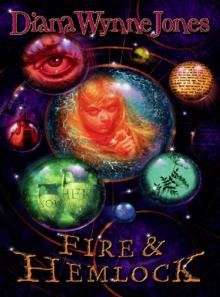 Fire and Hemlock
Fire and Hemlock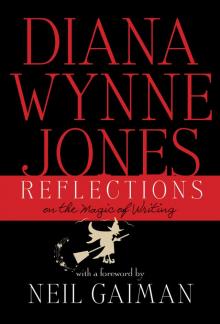 Reflections: On the Magic of Writing
Reflections: On the Magic of Writing The Game
The Game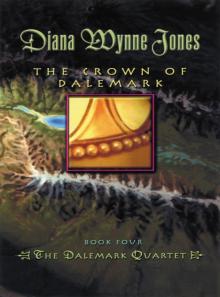 The Crown of Dalemark
The Crown of Dalemark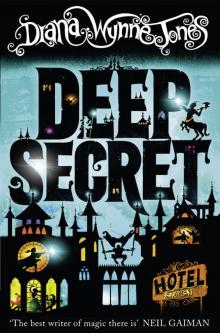 Deep Secret
Deep Secret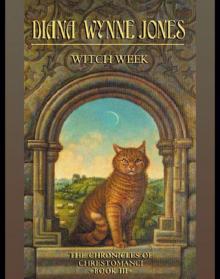 Witch Week
Witch Week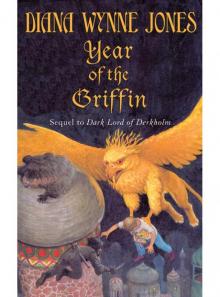 Year of the Griffin
Year of the Griffin Wild Robert
Wild Robert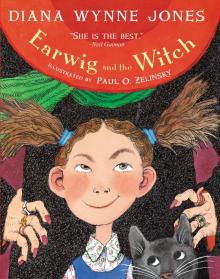 Earwig and the Witch
Earwig and the Witch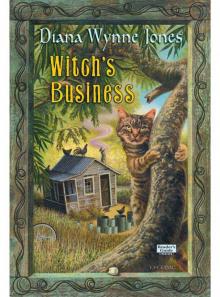 Witch's Business
Witch's Business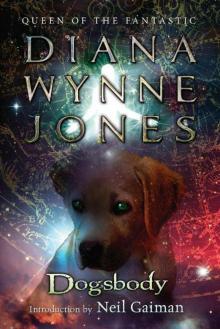 Dogsbody
Dogsbody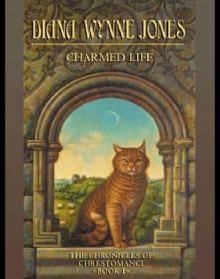 Caribbean Cruising
Caribbean Cruising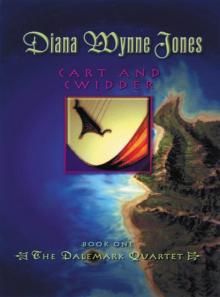 Cart and Cwidder
Cart and Cwidder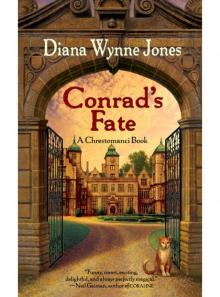 Conrad's Fate
Conrad's Fate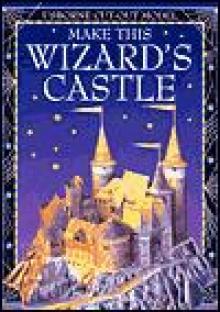 Howl's Moving Castle
Howl's Moving Castle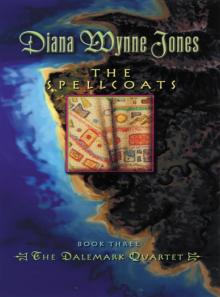 The Spellcoats
The Spellcoats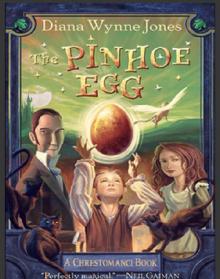 The Pinhoe Egg
The Pinhoe Egg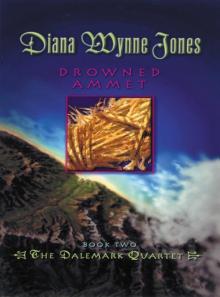 Drowned Ammet
Drowned Ammet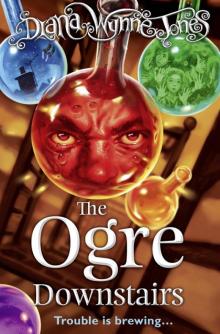 The Ogre Downstairs
The Ogre Downstairs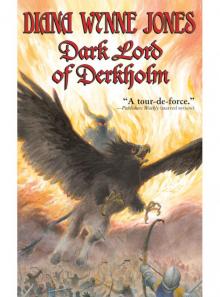 Dark Lord of Derkholm
Dark Lord of Derkholm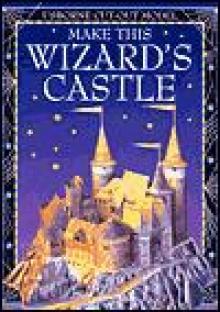 Castle in the Air
Castle in the Air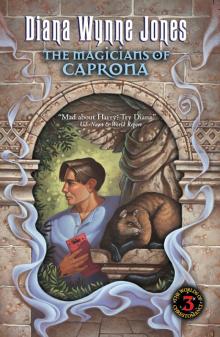 The Magicians of Caprona
The Magicians of Caprona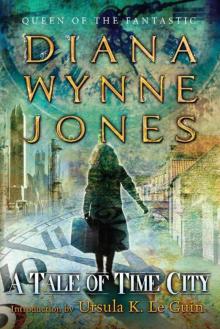 A Tale of Time City
A Tale of Time City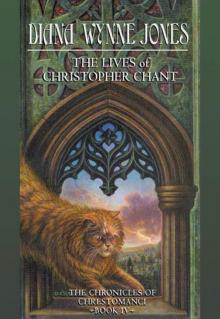 The Lives of Christopher Chant
The Lives of Christopher Chant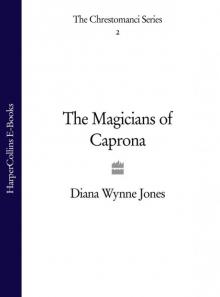 The Magicians of Caprona (UK)
The Magicians of Caprona (UK)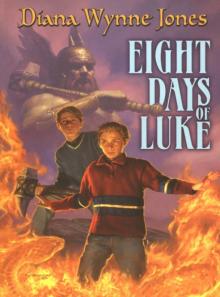 Eight Days of Luke
Eight Days of Luke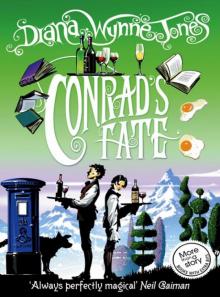 Conrad's Fate (UK)
Conrad's Fate (UK)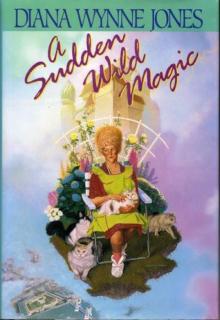 A Sudden Wild Magic
A Sudden Wild Magic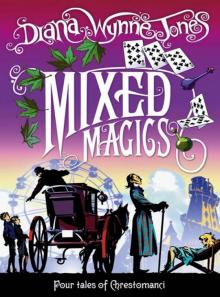 Mixed Magics (UK)
Mixed Magics (UK)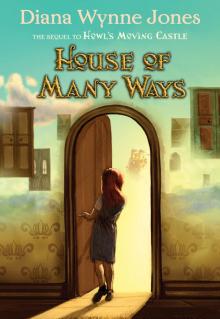 House of Many Ways
House of Many Ways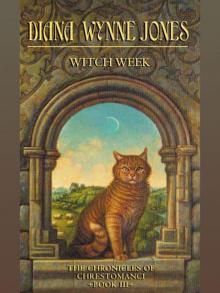 Witch Week (UK)
Witch Week (UK)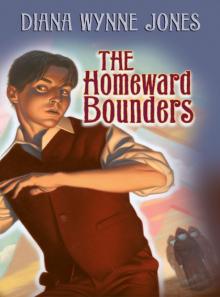 The Homeward Bounders
The Homeward Bounders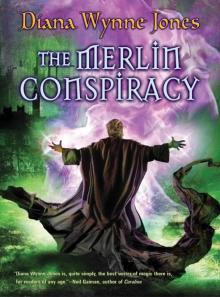 The Merlin Conspiracy
The Merlin Conspiracy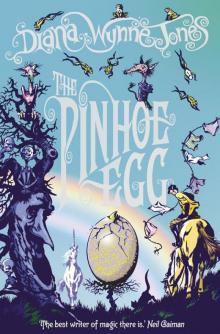 The Pinhoe Egg (UK)
The Pinhoe Egg (UK)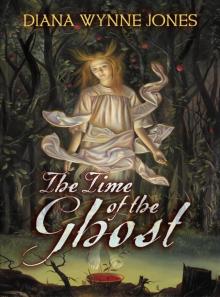 The Time of the Ghost
The Time of the Ghost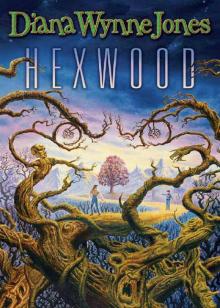 Hexwood
Hexwood Enchanted Glass
Enchanted Glass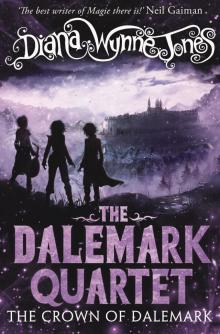 The Crown of Dalemark (UK)
The Crown of Dalemark (UK)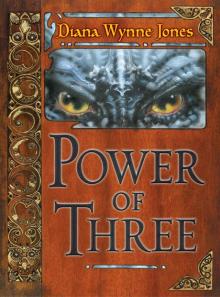 Power of Three
Power of Three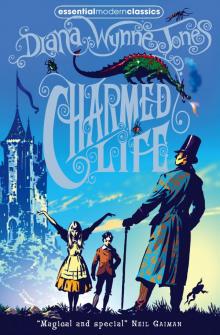 Charmed Life (UK)
Charmed Life (UK)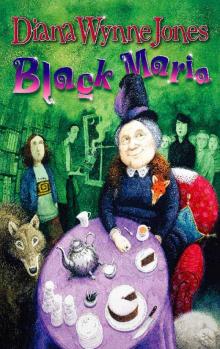 Black Maria
Black Maria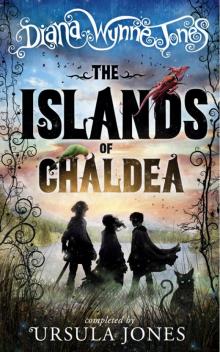 The Islands of Chaldea
The Islands of Chaldea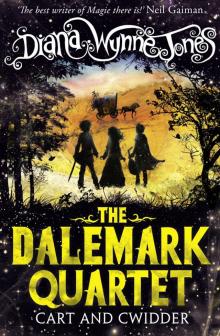 Cart and Cwidder (UK)
Cart and Cwidder (UK)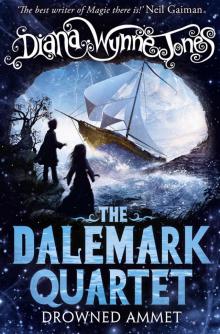 Drowned Ammet (UK)
Drowned Ammet (UK)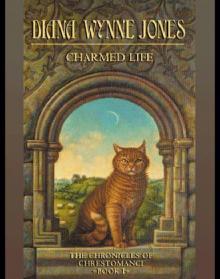 Charmed Life
Charmed Life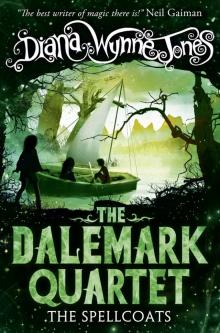 The Spellcoats (UK)
The Spellcoats (UK)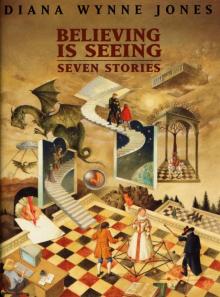 Believing Is Seeing
Believing Is Seeing Samantha's Diary
Samantha's Diary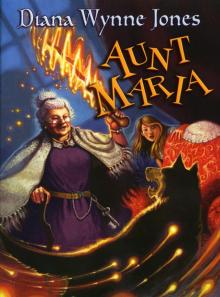 Aunt Maria
Aunt Maria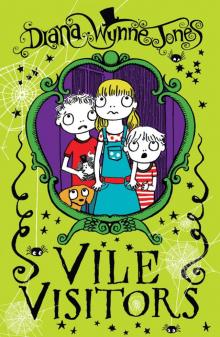 Vile Visitors
Vile Visitors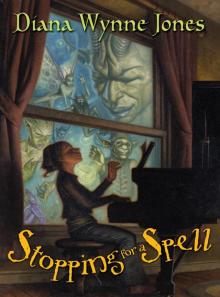 Stopping for a Spell
Stopping for a Spell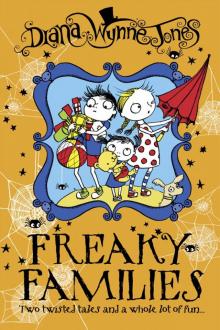 Freaky Families
Freaky Families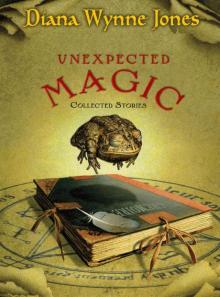 Unexpected Magic
Unexpected Magic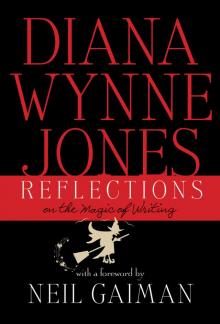 Reflections
Reflections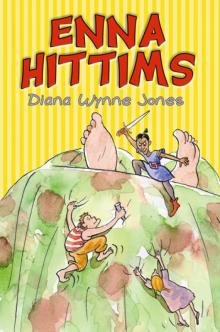 Enna Hittms
Enna Hittms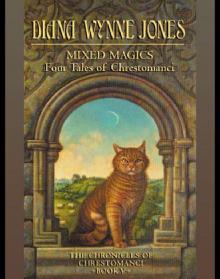 Mixed Magics: Four Tales of Chrestomanci
Mixed Magics: Four Tales of Chrestomanci